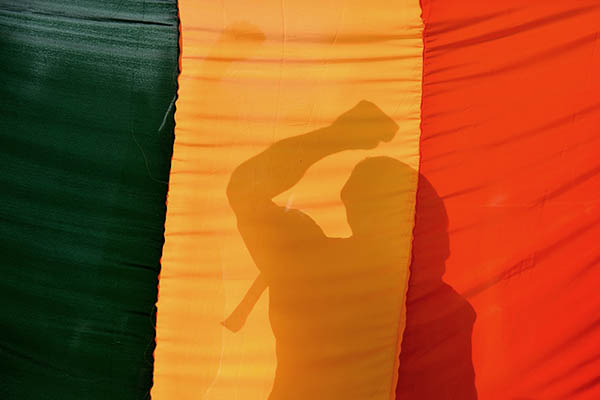Government spokesman proposes seeking review from larger bench of Supreme Court, warns of time-consuming legislative process.
India’s government said Thursday it would look at ways to swiftly reverse a shock ruling which reinstated a ban on gay sex, accusing the Supreme Court of dragging the country back to the 19th century.
Finance Minister P. Chidambaram, who doubles as the government’s chief spokesman, said gay rights legislation could be drawn up following Wednesday’s verdict but warned that such a move would be time-consuming.
Law Minister Kapil Sabil pledged that the government would take “firm and quick action” to alter what he called an anachronistic law.
Gay sex had been effectively legalized in 2009 when the Delhi High Court ruled that a section of the penal code prohibiting “carnal intercourse against the order of nature” was an infringement of fundamental rights. But in a shock judgment on Wednesday, a panel of two Supreme Court judges ruled that the High Court had overstepped its authority and that a law passed in 1860 during British colonial rule was still valid.
“What we have done is go back in time to 1860 and I’m terribly disappointed,” Chidambaram told the NDTV network. “We must explore ways and means in which this judgment can be reversed very quickly. Legislation is one way to reverse it but that may take time. (While) not giving up that option of legislation, we must explore other ways and I am willing to sit with my colleagues to find out if there are other ways in which this judgment might be reversed.”
Sibal confirmed that the government was considering its “options” to prevent millions of people being categorized as criminals. “This is not a law that fits in with the times, you cannot have an antediluvian and anachronistic law like this,” he told reporters. “Time is of essence, we believe in taking quick action, the government believes in firm and quick action.”
Gay rights activists responded to the ruling with dismay, calling it a “Black Day” for India, while newspapers said the judgment was an embarrassing throwback.
“It brings a discriminatory law that was created over 150 years ago by our colonial masters. It deals a body blow to the very idea of individual choice,” said The Times of India in a front-page editorial. But the same paper also said politicians had only themselves to blame for leaving such an issue in the hands of the courts rather than address it through legislation. “An amendment of 377 (the section of the code in question) is something Parliament should have done on its own a long time ago,” it said.
Sonia Gandhi, leader of the main ruling Congress party, also urged parliament to bring in legislation. “I hope that parliament will address this issue and uphold the constitutional guarantee of life and liberty to all citizens of India, including those directly affected by this judgment,” she said in a statement.
However, the prospects of any gay rights laws being passed ahead of elections due next May look remote as Congress and the main opposition Bharatiya Janata Party (BJP) have been at loggerheads for months.
Chidambaram proposed the government seek a review of the judgment before a larger panel of senior judges, saying that judicial interpretation of law could not remain “static.”
“I think the government should ask for a review or file a curative petition and ask that the matter be considered by a bench of five judges,” he said. “Today, in the year 2013 … to say that there is something like ‘intercourse against the order of nature’ and that is the social and moral value of today and that therefore should be the legal value of today is completely outdated, completely inappropriate,” he added.
The judgment has been widely criticized outside India as well, including from the United States. “We oppose any action that criminalizes consensual same-sex conduct between adults,” State Department spokeswoman Jen Psaki said Wednesday.
Religious groups who opposed the 2009 repeal, meanwhile, have hailed the reinstatement of the law, which is rarely invoked in practice.
Gay sex has long been a taboo subject in conservative India, where homophobic tendencies abound and many still regard being gay as a mental illness. In recent years, the gay community in India has raised its profile through gay pride marches, magazines and events, which have encouraged many to come out of the closet. But the country still has no major openly gay public figures in politics, entertainment or sport.

